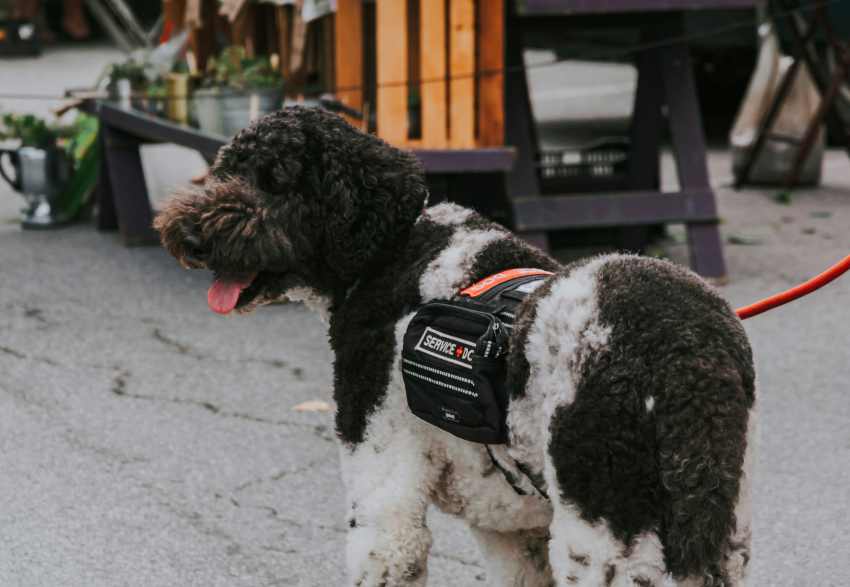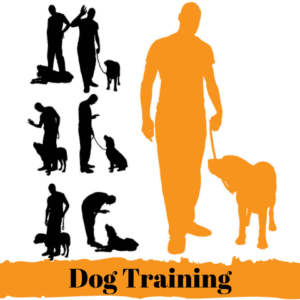Retiring a working dog is a significant milestone in their life, marking the end of their dedicated service and the beginning of a well-deserved retirement.
However, transitioning to life as a pet can pose unique challenges for a retired working dog accustomed to a structured routine and purpose.
In this detailed guide, we’ll explore expert tips and strategies to help your retired working dog adjust to their new home and embrace their retirement years with comfort and contentment.

As an Amazon Associate, I earn from qualifying purchases. When you purchase products through the links on this page, I may earn a small commission at no extra cost to you.
1. Understand Their Background:
Before bringing your retired working dog home, take the time to understand their background, including their breed, age, health status, and previous working environment. This insight will help you tailor their transition to retirement and address any specific needs or challenges they may have.
2. Create a Comfortable Environment:
Designate a quiet, comfortable space in your home where your retired working dog can relax and unwind. Provide a cozy bed, access to water, and toys for mental stimulation. Consider incorporating familiar items from their previous working environment, such as a blanket or toy, to help them feel more at ease.
3. Establish a Gentle Routine:
Retired working dogs thrive on routine, so establish a gentle daily schedule that includes regular meal times, potty breaks, walks, and rest periods. Consistency and predictability will help your dog adjust to their new life as a pet and provide them with a sense of security.
4. Allow for Decompression Time:
Retiring from a working environment can be overwhelming for some dogs, so allow your retired working dog plenty of time to decompress and adjust to their new surroundings. Limit exposure to new stimuli and gradually introduce them to new experiences at their own pace.
5. Provide Mental and Physical Stimulation:
Retired working dogs are used to mental and physical stimulation, so provide plenty of opportunities for enrichment activities to keep their minds and bodies active. Interactive toys, puzzle feeders, gentle walks, and short training sessions can satisfy their need for stimulation and provide a sense of purpose.
6. Offer Gentle Exercise:
While retired working dogs may not have the stamina they once did, regular, low-impact exercise is still essential for their physical and mental well-being. Take leisurely walks or engage in light play sessions to help them stay active and maintain a healthy weight.
7. Be Patient and Understanding:
Retiring from a working environment is a significant transition for retired working dogs, so be patient and understanding as they adapt to their new role as pets. Allow them time to adjust to their new routine and provide plenty of love, reassurance, and positive reinforcement along the way.
8. Consider Their Unique Needs:
Retired working dogs may have unique needs based on their breed, age, and previous working experiences. Be mindful of any health issues or mobility limitations they may have, and consult with your veterinarian to address any concerns and provide appropriate care.
9. Foster a Strong Bond:
Building a strong bond with your retired working dog is essential for their emotional well-being and overall happiness. Spend quality time together, engage in gentle grooming sessions, and offer plenty of affection to strengthen your connection and reassure them of their new role as a beloved companion.
10. Celebrate Their Retirement:
Retiring a working dog is a significant milestone worthy of celebration. Take the time to acknowledge and celebrate their years of dedicated service, and embrace their retirement years with love, compassion, and gratitude.
Conclusion: Helping Your Retired Working Dog Transition to Retirement
Helping your retired working dog adjust to their new home and embrace retirement requires patience, understanding, and compassion. By following these expert tips and strategies, you can ensure a smooth transition for your beloved companion and provide them with the love, comfort, and companionship they deserve in their retirement years.
As an Amazon Associate, I earn from qualifying purchases. When you purchase products through the links on this page, I may earn a small commission at no extra cost to you.
